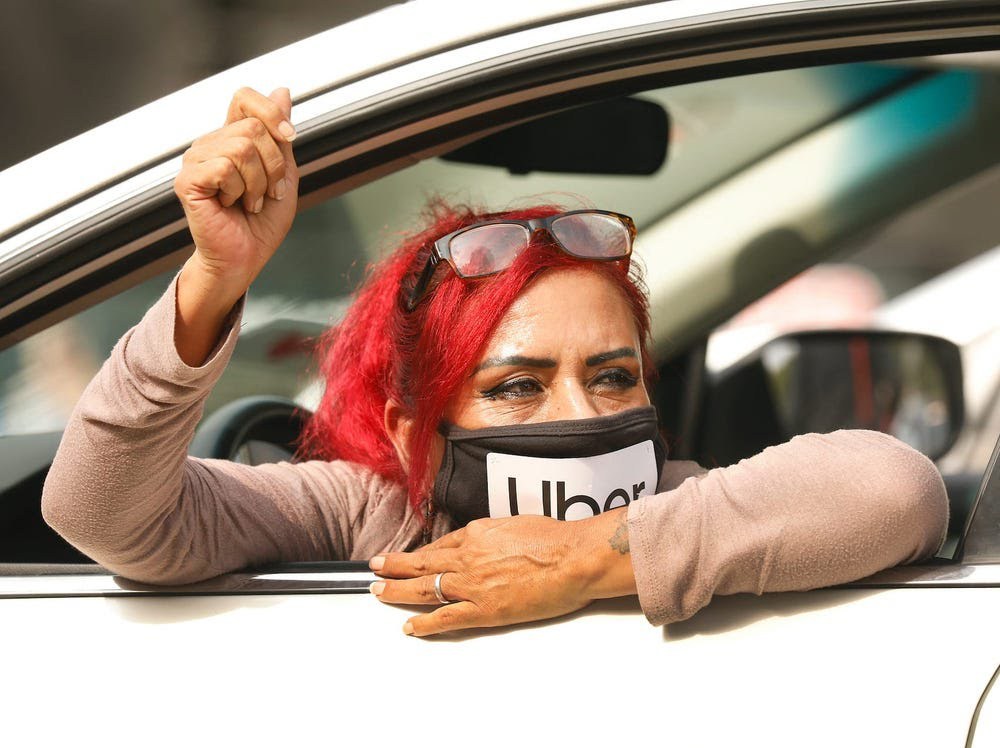Uber and Lyft are raising concerns all over the nation as ride prices skyrocket to an all-time high. This comes as a result of a decrease in drivers amid the pandemic. Drivers are taking their time returning to work out of fear of contracting the virus and some just aren’t motivated by the rideshare incentives in a time when millions are still receiving ongoing unemployment benefits.
The question on everybody’s mind should be whether drivers will be more motivated to return to work now that the federal unemployment benefit that grants them an extra $300 per week is coming to an end in 25 states. A lot of people feel Uber and Lyft need to offer better incentives. “We’re making less than normal,” said Robert Eaton of Reno, Nevada, a full-time Uber driver for over two years. “While fares have skyrocketed in this market, the drivers’ pay has not been raised at all.” Uber and Lyft have reportedly shared with The New York Times that drivers are making more but the consensus among drivers is that they aren’t seeing much of a difference in terms of payments. In some cases they are seeing less due to longer cancellation times and less minimum charge for longer distances.
Rideshare drivers might not have much of a choice with lack of work, other industries not yet recovering, and the feeling that they aren’t qualified to get work elsewhere. Uber and Lyft seemingly have no prior qualifications besides passing a criminal record and owning a car.
Uber, on the opposition, said that it is coming up with new ways to attract new drivers with offers such as sign-on bonuses being added every day. In May, the company welcomed an additional 33,000 drivers, while 100,000 drivers also returned to work. Yet, customers haven’t seen a change in the prices for their commute to work.
Chicago customer Matt Shachat said that when he first moved to Chicago, he would pay an Uber $23 each way to get to his office, but now that number is closer to $32 a ride. Shachat is not alone. Many other people rely on rideshare services to get to work, for reasons that just make sense and with a phobia of contracting the virus.r. This coupled with increased vaccine rollout has made some, in contrast, feel safe to start going out again. Therefore, they rely on these services to take them to restaurants and dinner dates with friends.
Amidst all this reliance on rideshares, a rising concern among riders is that they feel they don’t have enough options in terms of services competing with companies like Uber and Lyft. Taxis are drowning with the popularity of rideshare, to numbers never seen before.With less taxis on the road and higher prices on Uber and Lyft, the issue of where riders can turn to for less expensive trips is a pressing concern.
Frustrations among drivers is also prevalent as they are rallying for better work conditions. The uproar is nothing new, as previously riders have protested to be acknowledged as “workers” instead of independent contractors which make less money due to Uber and Lyft’s business model of pocketing a large share of the fares.
What we will see in the upcoming weeks will determine whether riders will continue to wage in on Uber and Lyft’s scandalous business model and whether drivers will continue to put up with frustrating work conditions. In a state of pandemic, we need more companies to side with their employees, instead of giving them the short end of the stick.
Will capitalizing on a pandemic drive these rideshare companies into a state of doom? If so, where would employees turn to – in a time when our economy is being increasingly supported by gig apps, we might have to rethink our economic balance and laissez-faire laws.











